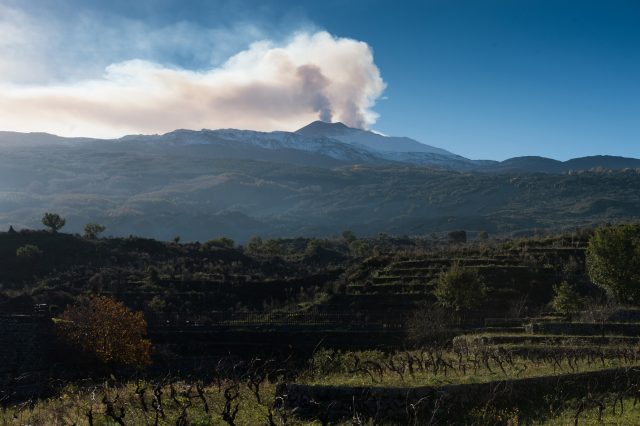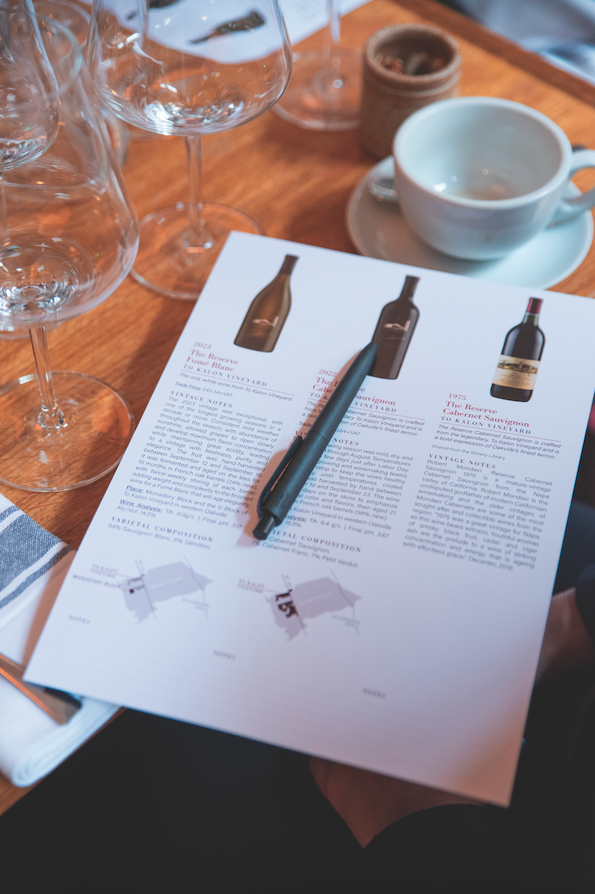Vineyard prices are soaring in Etna
The price of vineyard land in Etna has shot up compared to the rest of Sicily due to the global popularity of the wines, according to a leading producer in the region.

Speaking to the drinks business during a recent visit to Vajasindi – the Etna estate owned by Duca di Salaparuta – winemaker Salvatore Tomasello said:
“Vineyard land prices have become so high in Etna now compared to the rest of Sicily. One hectare of land in Sicily costs around €20,000 to €25,000 on average, while 1ha on Etna costs between €150,000 and €250,000 – so ten times more.”
While Etna’s growing global reputation is all well and good, Roberto Magnisi, director of Duca di Salaparuta, believes winemakers need to stay humble.
“In the last 15 years Etna has gained international credibility for its unique terroir and elegant wines. Protecting a territory like Etna requires having the courage to show the true character of the wines without being slavish to fashions or commercial trends,” Magnisi told db.
“Duca di Salaparuta has embraced telling a monovarietal story of the volcanic soils with the aim of making the land come to life in the glass,” he added.
Located in Passopisciaro in the municipality of Castiglione della Sicilia, the Vajasindi estate is divided into three terraces residing at altitudes between 620m and 700 metres above sea level.
Alongside Etna’s flagship red grape Nerello Mascalese, Duca di Salaparuta also champions Pinot Noir at Vajasindi, which is used to make high-end red Nawàri.
Tomasello told db that the growing conditions in Etna are unique in the wine world.
“You get times when it rains ash and you’re out with your umbrella and everything goes dark, it’s crazy,” he said, though noted that big diurnal shifts in temperature allow for the slow and even ripening of his grapes.
Something of a rarity when it comes to Pinot production in Etna, Tomasello said the expressions he makes are “more powerful and mineral in character than Pinots from Burgundy”.
“The Pinot we make in Etna is very fruity and spicy. It has a similar colour to Nerello Mascalese, but there’s an important tannic difference between the two, as Nerello has a firmer structure and more robust tannins than Pinot,” he said.
“The quality of the two grapes is similar, but the yields are a lot less for Pinot, which we harvest a month earlier than Nerello, as it has thicker skins than Pinot.
Partner Content
“Pinot grows in very small bunches here – you get one kilo of grapes per plant.”
Tomasello believes Etna Pinot and Nerello Mascalese have equally good ageing potential; the latter largely due to its high acid and robust tannic structure.
Like many Etna estates this year, Vajasindi was besieged by rain during flowering in May in its wettest year since 1997, leading to yield losses of around 50%.
In northern Etna 604mm of rain was recorded between April and October, which normally represents the annual average for Sicily, with 300mm falling between 20-21 May alone.
“We’re an organic vineyard so we couldn’t treat the vines during that period, as they were too wet due to the rains, which persisted for a month,” Tomasello revealed.
As much as 60% of Etna DOC’s 1,300 hectares under vine are farmed organically, with production amounting to a little more than 5.8m bottles from last year’s harvest.
While organic farming is challenging in wet conditions, Magnisi doesn’t regret his decision to make the switch to organic viticulture.
“Being worried about climate change is not enough, we need to find alternative ways to grow our grapes.
“In October 2022 I decided to convert all the Duca di Salaparuta estates to an organic strategy and was aware of the enormous commitment I was making.
“Having just completed my most difficult harvest, I don’t regret having asked our technicians to take on this commitment. I’m grateful for the path we’ve chosen as it has pushed us to be in full synergy with our vineyards,” he told db.
Related news
Behind the label: Alto Adige and the question of language




